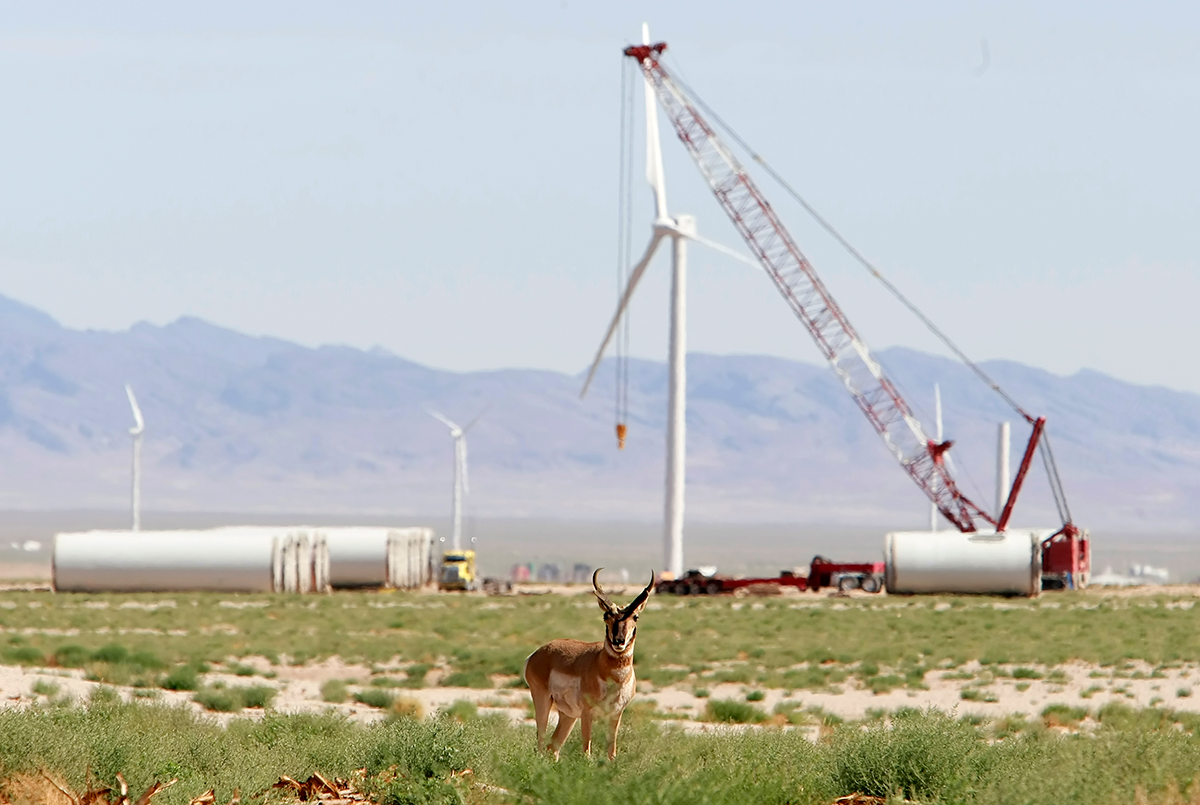On 10 May, Joe Biden’s White House called on Congress to pass the permitting reform. The current proposal may be part of the ongoing talks on raising the government’s debt ceiling, and the president has said he is open to including permitting reform as part of the negotiations.
“Right now, the permitting process for clean energy infrastructure, including transmission, is plagued by delays and bottlenecks,” John Podesta, Biden’s senior clean energy adviser, told the Bipartisan Policy Center think tank. “We’ve got to fix this problem now.”
The legislation would establish a two-year limit on environmental reviews of major federal energy projects, and require Biden to designate 25 or more key energy projects, prioritising their consent.
Last year, Biden backed permitting reform legislation also sponsored by the conservative Democratic senator Manchin, but it failed.
Slow and bureaucratic permitting is one of the main obstacles facing both wind power and transmission projects in the US, onshore and offshore.
The American Clean Power Association (ACP) is broadly backing permitting reform, and ACP president Jason Grumet was due to testify at a Senate Energy Committee hearing on the issue this week.
In an energy fact sheet issued on 10 May 10, the White House called for Congress to speed up the connection of interstate and offshore electric transmission lines by providing for electric transmission siting and cost allocation.
It also called for reform of the interconnection queue so that new generation projects are not waiting for approval for often more than four years.
The government further identified requiring multiple benefits and burdens to be considered during interregional transmission planning, such as economic, reliability, operational, environmental and climate impacts.


.png)


.png)









